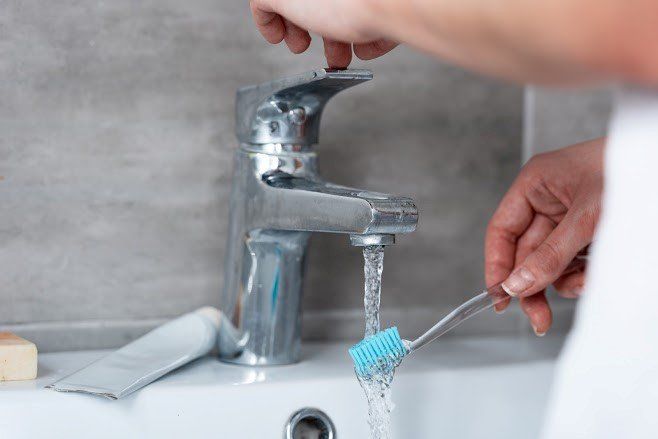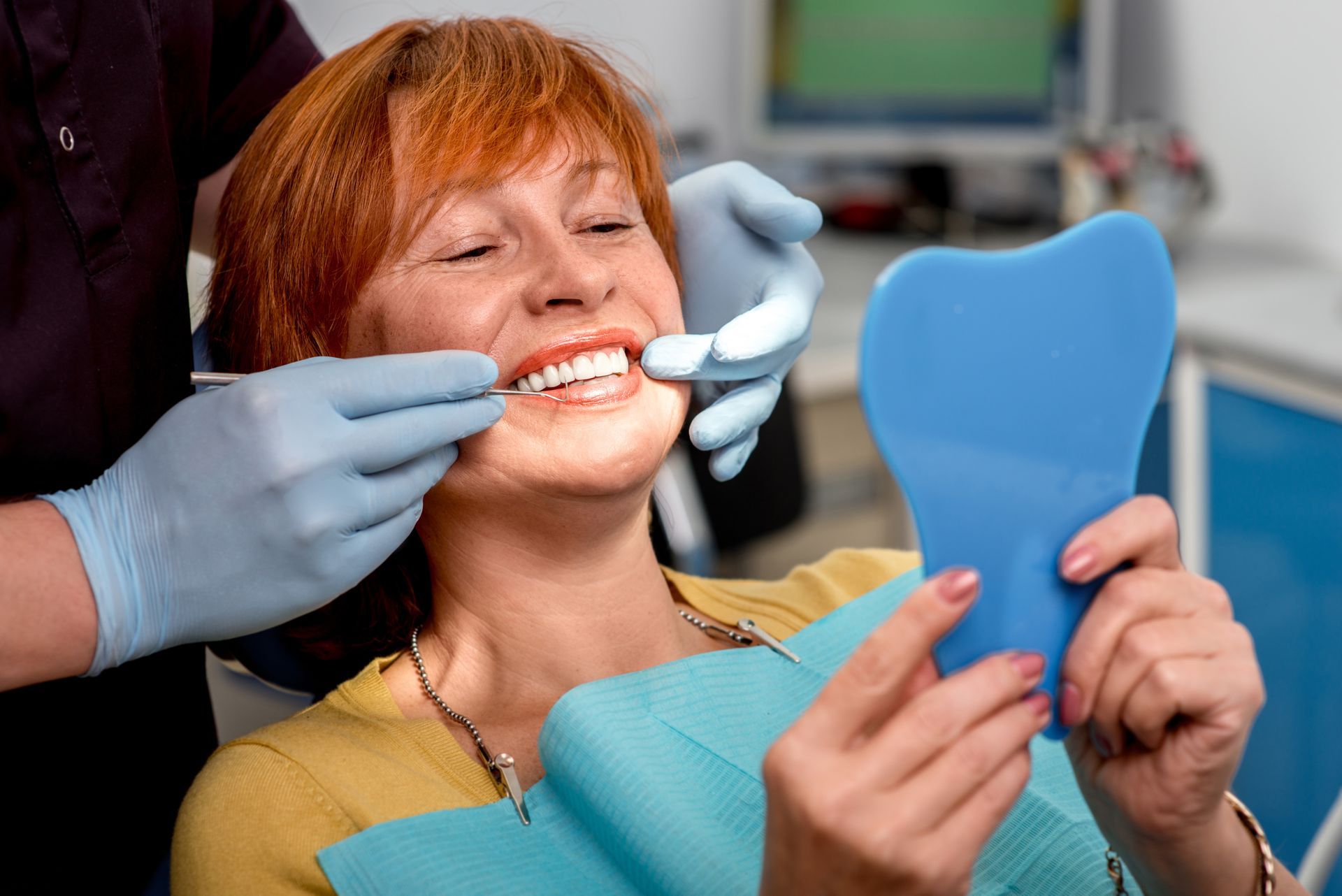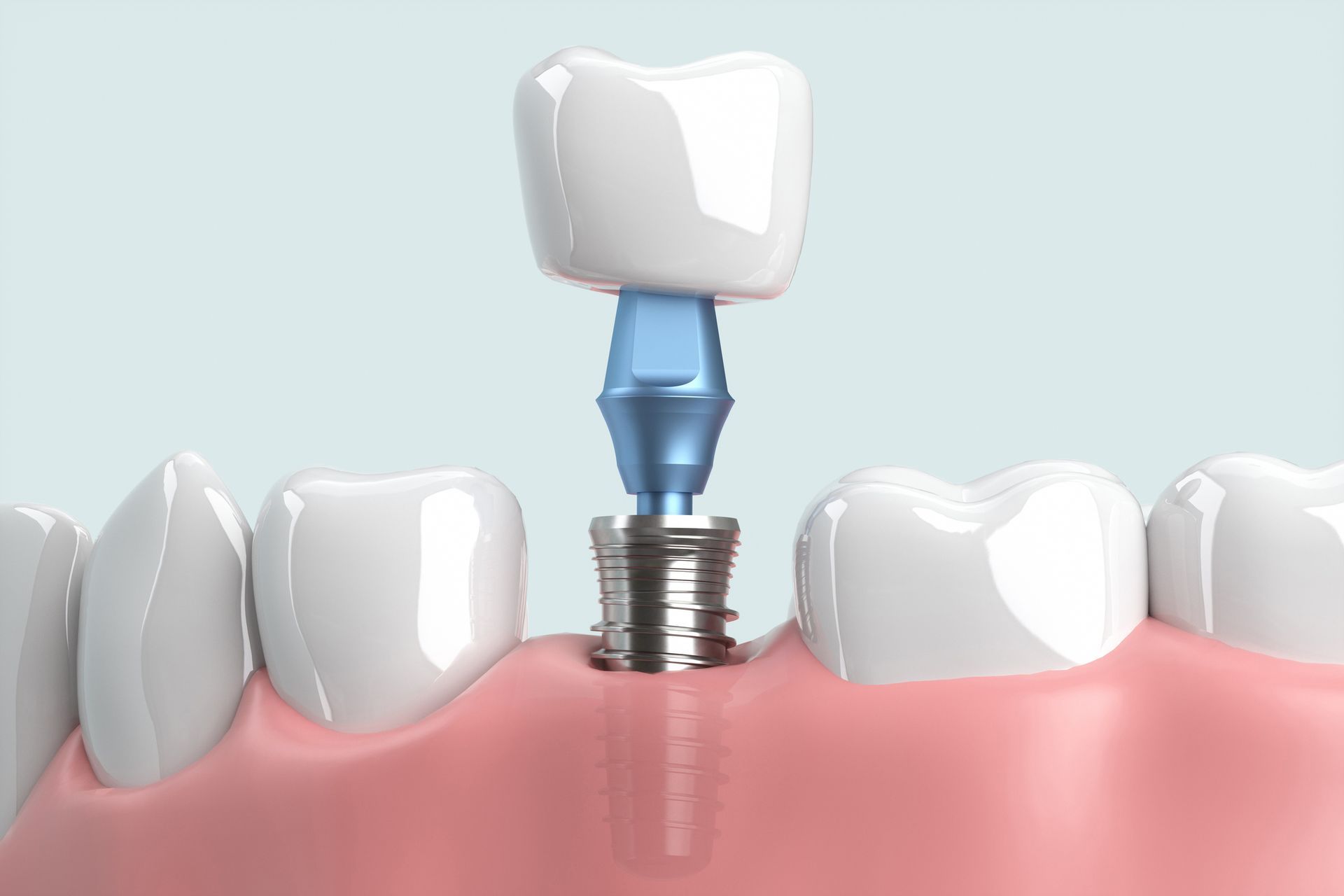GUM DISEASE SYMPTOMS YOU NEED TO LOOK FOR
- By Admin
- •
- 11 Jan, 2021

Do you have gum disease? Symptoms such as pain and bleeding gums are common signs of a periodontal problem, but these aren't the only red flags to watch out for. Take a look at the lesser-known, but equally important, symptoms of gum disease.
CHANGE IN YOUR BITE
The dental term bite refers to the way your upper and lower teeth fit together. In a normal bite, the upper and lower molars should fit together, and the rest of your upper teeth should sit slightly over the lower ones.
When your teeth don't fit together correctly, the misalignment is known as a malocclusion. Malocclusions can include slight or dramatic overlaps of either the upper or lower teeth. Along with aesthetic issues, malocclusions can cause problems eating properly, difficulty speaking, trouble breathing, or teeth grinding.
Severe periodontal disease can cause teeth to loosen or fall out. These loose or missing teeth can affect your bite, leading to a malocclusion. You may notice that your teeth don't fit together like they used to, have difficulty chewing, or affect the way you speak.
Before the dentist or an orthodontist can correct your bite, they'll need to treat the existing gum disease. While home care (such as brushing and flossing) can impact minor cases of gum disease, these oral activities typically aren't enough to correct significant periodontitis. This form of advanced gum disease can cause rapid oral tissue or bone loss if left untreated.
Common nonsurgical treatments for severe periodontal disease include root planing and scaling or the use of antibiotics. If these don't correct the issue, you may need oral surgery, such as flap or pocket reduction surgery, a soft tissue graft, a bone graft, or pinhole gum rejuvenation. If periodontal disease has caused you to lose teeth, you may need a dental implant or dentures to fill out your smile and correct your bite.
BAD BREATH
Bad breath has several potential causes. Some people experience this common issue after eating pungent or strongly spiced foods or during an illness/respiratory infection. But this often-embarrassing issue can also result from gum disease.
Poor dental hygiene leaves debris and food particles in your mouth. This debris can cause bad breath, while also leading to gum disease. Without adequate brushing and flossing, a sticky plaque forms on your teeth. This can irritate the gum area and causes periodontal pockets (or areas where the gum separates from the tooth).
Talk to your dentist about the possible causes of your bad breath. Again, gum disease isn't always the culprit behind this oral issue. If the dentist rules out other possibilities and finds evidence of gum disease, they'll recommend changes in your oral care routine and a treatment plan.
ORAL ABSCESS
Poor oral hygiene won't only cause bad breath; it can also cause a painful abscess. While not all gum disease results in an oral abscess, this is a possible consequence of periodontitis. A gum abscess is a pocket of pus in your mouth. This uncomfortable oral issue happens when bacteria invade the space between your teeth and gums.
Like with bad breath, failure to properly clean and care for your teeth can result in plaque. The bacterial overgrowth can cause or aggravate periodontal disease. If not treated, the infection can spread and result in a gum abscess. Along with this type of abscess, an infection can also start in an existing periodontal pocket. This makes prompt pocket treatment essential for your overall oral health.
A gum abscess can cause pain, redness, swelling, and visible pus to form in the area. After the dentist diagnoses an abscess, they'll need to deep clean (root planing and scaling) the area, drain the pus, and possibly prescribe antibiotics.
Are you ready to turn your oral issues around? Contact the office of Bradley Piotrowski, DDS, MSD, LLC, for more information.
AREAS WE SERVE
- Alva
- Ave Maria, Florida
- Bonita Springs, Florida
- Cape Coral, Florida
- Estero, Florida
- Fort Myers Beach, Florida
- Goodland, Florida
- Lehigh Acres
- Lely
- Marco Island, Florida
- Naples, Florida
- Saint James City, Florida
- Sanibel Island, Florida
- Vanderbilt Beach, Florida
AREAS WE SERVE
- Alva
- Fort Myers Beach, Florida
- Naples, Florida
- Ave Maria, Florida
- Goodland, Florida
- Saint James City, Florida
- Bonita Springs, Florida
- Lehigh Acres
- Sanibel Island, Florida
- Cape Coral, Florida
- Lely
- Vanderbilt Beach, Florida
- Estero, Florida
- Marco Island, Florida
This web site is not designed to, and does not, provide medical advice. all content ("content"), including text, graphics, images and information available on or through this web site are for general informational purposes only.
The content is not intended to be a substitute for professional medical advice, diagnosis or treatment. Never disregard professional medical advice, or delay in seeking it, because of something you have read on this web site. Never rely on information on this web site in place of seeking professional medical advice.
Bradley Piotrowski, DDS, MSD, LLC is not responsible or liable for any advice, course of treatment, diagnosis or any other information, services or products that you obtain through this site. You are encouraged to confer with your doctor with regard to information contained on or through this web site. After reading articles or other content from this web site, you are encouraged to review the information carefully with your professional healthcare provider.
CONTACT INFORMATION
Address: 1044 Castello Drive, Suite 202, Naples, FL 34103
Phone:
(239) 263-6003
Email: drbradpiotrowski@gmail.com
Business Hours:
- Mon - Thu
- -
- Friday
- Appointment Only
- Sat - Sun
- Closed













